
The Aquatic Chemistry group at UW-Madison focuses on processes that impact water quality. We study the fate of polar organic contaminants, such as pesticides and PFAS, in natural and engineered aquatic systems. We also study processes that transform organic chemicals, including the role of dissolved organic matter in those systems. By studying these fundamental reaction mechanisms, our group aims to develop models and real-world applications that can be used to improve water quality.
Group News
| 5 September 2025 Erin Bulson and Kaitlyn Gruber’s paper on PFAS leachability in metal recycling streams is now out in the Journal of Hazardous Materials. Erin was advised by Andrea Hicks. |

|
| 30 May 2025 We have a new paper out in Environmental Toxicology & Chemistry on the prevalence and potential for biological effects of PFAS in Lake Superior tributaries. This paper is a collaborative effort with USGS and the Wisconsin State Laboratory of Hygiene. |
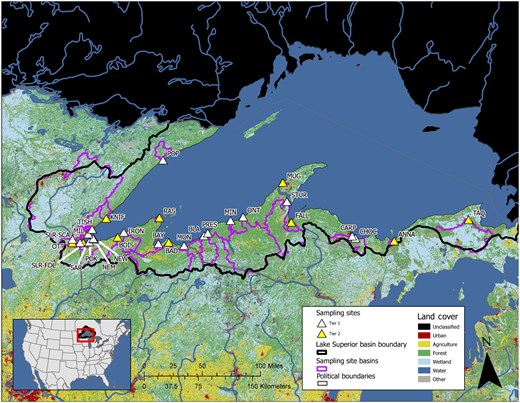
|
| 7 May 2025 A huge congratulations to Jenna Swenson on a successful defense of her dissertation! Jenna’s research focused on using manganese oxides to degrade phenolic contaminants. She was co-advised by Matt Ginder-Vogel and was in the Environmental Chemistry & Technology Program. |
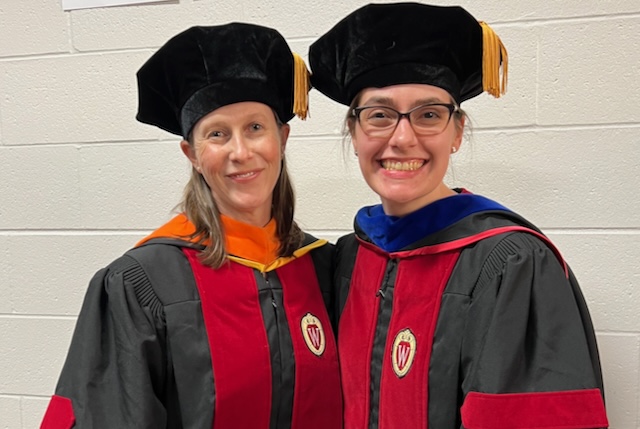
|
| 8 April 2025 Congrats to Ali Milani on being named a National Science Foundation Graduate Research Fellow! |

|
| 3 April 2025 Christy was named the Director of the Aquatic Sciences Center, which is home to the Wisconsin Sea Grant College Program and the University of Wisconsin Water Resources Institute (WRI). Both programs support multidisciplinary research, education, and outreach for the protection and sustainable use of Wisconsin’s water resources |
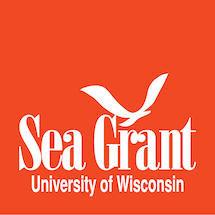
|
| 13 August 2024 We have two new papers out in Environmental Science & Technology on PFAS partitioning in (1) naturally forming foams and the surface microlayer and (2) freshwater ice. Both papers were led by postdoc Summer Sherman-Bertinetti. For more on the foam study, please see the UW-News video and press release. |
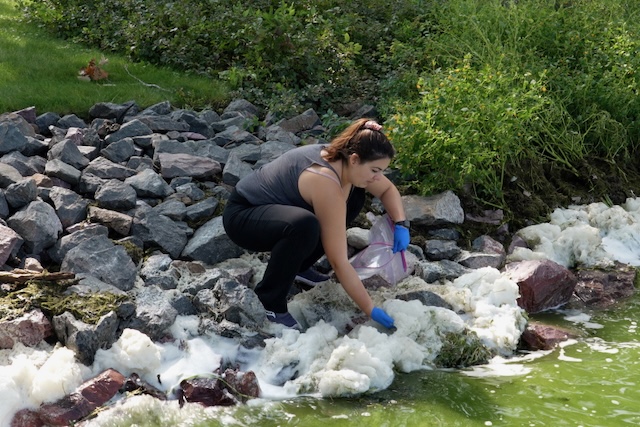
|
| 8 May 2024 Congratulations to Eddie Kostelnik (left) and Lauryn Angell (right) on successfully defending their master’s theses in Environmental Chemistry and Technology. Eddie studied the photochemistry of dissolved organic matter and Lauryn studied the fate of lampricides in tributaries of the Great Lakes. |

|
| 24 January 2024 Congrats to Jenna Swenson for her shiny new first-author paper in Environmental Science & Technology. She investigated the combined impacts of cations and dissolved organic matter on manganese oxide reactivity in collaboration with Matt Ginder-Vogel. We are super proud of her work on this incredibly complex system. |
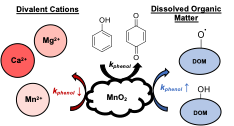
|
| 4 January 2024 Our latest study on aquatic herbicides is now out in Environmental Science: Processes and Impacts. This was a team effort, with work performed by two master’s students (Sydney Van Frost and Angela Magness), a PhD student (Amber White), and a UW-Madison undergraduate (Josie Jauquet). They showed that laboratory measurements underestimate the persistence of the herbicide fluridone in lakes. |
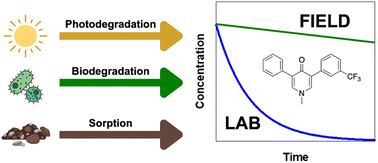
|

